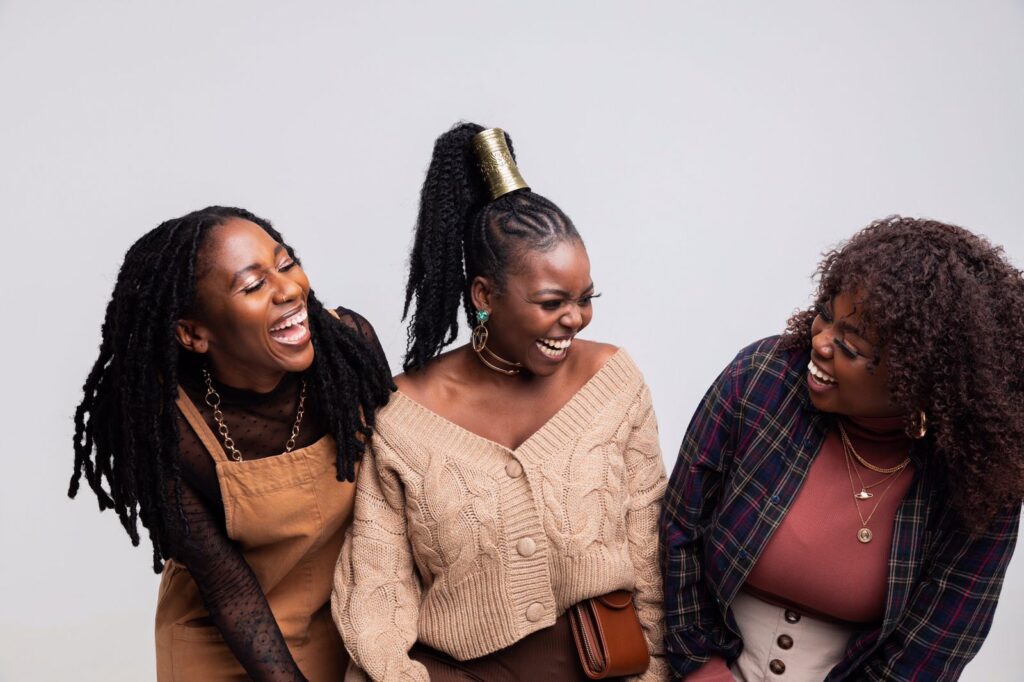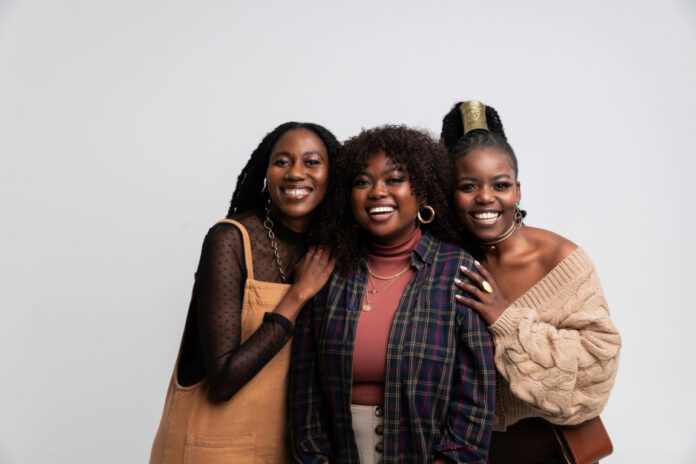South Africa has caught the Afrobeats bug, and it is about time! Kat Upendi, Spokenpriestess and Boujeena are the three South Africans DJs behind Afrobeats Space. It’s a collaborative weekly Twitter space that brings together Afrobeats lovers on all things concerning the genre. The Daily Vox team spoke to the three women making strides in promoting Afrobeats in South Africa.
A few years ago, Afrobeats DJs were predominantly men, possibly of Nigerian descent and predominantly played in nightclubs. However the love for the genre has grown so much that there are now “new” faces in the scene.
The birth and exponential growth of Afrobeats comes from the eclectic sounds of Afrobeat. Artists such as Fela Kuti conceived the music of Afrobeat. The historical genre is a fusion of West African rhythms and melody. It contains Yoruba praise poetry, the harmonic backdrops of funk and soul and the spontaneous nature of jazz.
Most of the songs under the genre criticised corruption, politics of the 1960s and colonialism. Fast forward to half a century later and Afrobeats started to emerge in nightclubs around West Africa, the UK and America. It then catapulted to the rest of the world. Today the music plays around with tropes about God, money, sex, love and vices.
The future of Afrobeats is exciting. What is even more thrilling are the figures at the forefront of it all.
“People are starting to see that the world loves Afrobeats. This is due to the collaborations we have been seeing from both our South African Amapiano artists and Nigerian artists. If Focalisitic can collaborate with a Nigerian artist, his listenership will naturally gravitate towards that music,” said Upendi.
The DJ recalls having to be taken off stage at an event once because the crowd were not dancing to the music. “We have since changed so much from that. Now there are people on the dance floor wining their waists (dancing) and the crowd loves the music” Spokenpriestess said.
“Women are the driving force behind pop culture and trends in general. We owe the rise of afrobeats in South Africa to them too,“ Spokenpriestess said. The DJs collectively added that in recent years – Africans on the continent and in the diaspora have become leading voices in black culture.

It was only about time South Africa caught on the influence.
When asked about the challenges they face as a rather niche groups, Boujeena said “As women who play Afrobeats we often get overlooked. In some instances, DJs who do not play Afrobeats will fiddle with the music towards the end of their set, making it impossible for us to play in succession to them… This make it seem as though we are incompetent in our craft.”
“I have had instances where male DJs will stand right next to me in the booth to see if I am playing a premixed set. [This is because] they don’t believe that I am mixing everything myself,” said Spokenpriestess. “The disregard of the genre has also been one of the reasons why it has been difficult to see the visibility of Afrobeats Djs outside of the nightclub scene,” said Upendi.
A first encounter with Afrobeats (with an s not to be confused with Afrobeat) was in a Johannesburg nightclub at the time. It was a popular song by award winning artist Davido… the genre was a nightclub staple. Those who were avid supporters would relish in its percussionary pleasures on weekends over the highly indulgent lifestyle of champagne popping and sparkles. Club culture propelled listenership and soon celebrated songs or albums that hit the charts would be heard within and outside the club scene.
When South Africa became synonymous with xenophobia post the 2008 xenophobic attacks, South Africa’s ability to have friendly relations with other countries was questioned. The consumption of Afrobeats and other genres from around Africa regressed. The nightclubs became partly Afrobeats and mostly house music, Hip Hop and Kwaito. However with time certain hits such as P-Square’s Personally, Cabo Snoop’s Windeck, and D’banj’s Oliver Twist gained popularity allowing people to enjoy music from South Africa’s neighbours.
With time things have since changed and today the growing embrace of Afrobeats by South Africans has been remarkable to watch.
RELATED:
#TDVFridayRecommends: Check out some of Afrobeats’ hottest female artists
The DJs also shared their thoughts on Burna Boy’s anticipated headlining performance at the DSTV Delicious festival September 2022. The announcement was surprising as Burna Boy vowed to never set foot in South Africa. This was his response to the tweets by South African rapper AKA. The rapper made comments around the funding of international artists when South African artists were “unfunded”.
“It is great that Burna Boy has finally agreed to play in South Africa. That shows that we are once again becoming one. However I know they will not book even a single Afrobeats DJ to open for him,” said Boujeena. “Instead they will pick a DJ that does not play the genre,” she said.
The Djs expressed their support for the marriage of Africa’s biggest musical exports on the international stage. Amapiano and Afrobeats “Afroyanos” as Upendi coined it, “makes us optimistic about the future of African music.
“This is why we decided to start Afrobeats Space, because as lovers of the genre we have dedicated so much time and love to the genre that it is important for us to be at the forefront of its promotion in South Africa.” They cannot ignore us when there are 3 of us,” she said.









